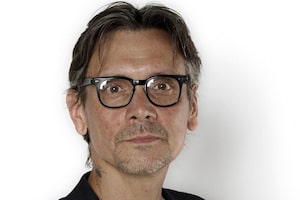When Paul Schrader sat down a few years ago to talk, for a DVD supplement, about writing the script for the darkside classic Taxi Driver, he said something fascinating about Travis Bickle, the movie's delusional psychopathic protagonist, who's on a mission to flush the streets of New York of the sewage flowing beyond his windshield. He sets out to rescue a young prostitute (Jodie Foster), gunning down the sinners. Judgment is his.
Travis (played by Robert De Niro) may call himself "God's lonely man," but Schrader begged to differ: "We are not lonely by nature. We make ourselves lonely. Travis makes himself lonely."
Taxi Driver isn't about loneliness, Schrader stressed. It's "about a man who suffered from the pathology of loneliness.… He wasn't lonely by nature. He was lonely as a defence mechanism."
In a sense then, Travis lives in a hell of his own making, a concept that held obvious fascination to both the rural, Calvinist, Christian Reformed Church-reared Schrader and the movie's director, the urban, Roman Catholic-raised Martin Scorsese.
For these two, as different as their respective theological sensibilities might outwardly be, this much was shared: Hell was right here on Earth. (It was an idea they would revisit again in Raging Bull and, most controversially, The Last Temptation of Christ.) Travis certainly thought so – and he cast himself in the role of righteous avenging angel: God's lonely man. Those of us watching Travis might think so too, but the devil we see is the man who thinks he's doing God's will.
I'm not sure where Kevin Miller, the director of the eminently debatable new documentary Hellbound? sits on the matter (though the question mark in the movie's title is surely significant). But the answer may lie in the fact that two of the movie's first interview subjects offer pretty compelling arguments for the hell-on-Earth theory.
First is a group of aggressively intolerant Westboro Baptist Church fundamentalists who gather at the former site of the World Trade Center in New York, on the 10th anniversary of the 9/11 attacks, to wave signs that read things like "God Hates Fags" and "Soldiers Die, God Laughs." They believe hell is real and literal, and that everybody but them seems doomed to go there. (Which raises the question: Who wants a heaven with them in it?)
Second is screenwriting guru Robert McKee, a self-avowed atheist who nevertheless sees hell as an absolutely necessary narrative construct. For McKee, heaven and hell provide the ultimate structuring polarity to a species that makes sense of itself through narrative – in other words, if hell didn't exist, we probably would have created it anyway.
But most of Miller's interview subjects in Hellbound? do believe in a hell of the extra-earthly kind, although their own particular ideas of the place differ radically. There are the subscribers to the good-old-fashioned, eternal-souls-on-a-spit notion of the place, and there are those who think God doesn't send his sinning children to roast forever, but "annihilates" their souls at the turnstiles to heaven. Finally, there is the soothing but highly contentious "universalist" view, which believes all people eventually find God's grace in the afterlife.
Naturally, as this smacks of heaven as a blue kind of state, it's firmly rejected by those who preach a tough law-and-order agenda from here to eternity. Even McKee calls the universalist view "wussy," presumably because what's good for the liberal soul is hell on good storytelling.
Hellbound? is not likely to change anybody's mind on the subject, and not merely because this is the kind of thing on which people tend to be pretty firm, but because it endorses an idea of rational, reasoned and temperate debate in an area that really has no place for, as one interviewee so amusingly puts it, interpretive "wiggle room."
So what you've got is a liberal documentary about the most illiberal of ideas. I'm guessing that will satisfy those who have already accepted hell as a necessary man-made construct more than those convinced the foregoing are all going to rot in hell forever anyway. God knows Travis Bickle didn't kill those people at the end of Taxi Driver because he thought they were going to be let off and sent to heaven.
In the literal sense, heaven and hell is the ultimate black-or-white, yes-or-no, in-or-out, up-or-down concept. It doesn't allow for any compromise or shading, because once it does it opens the floodgates to all kinds of questions, qualifications, dissent and compromise. And then all hell breaks loose, right here on Earth.
 Geoff Pevere
Geoff Pevere